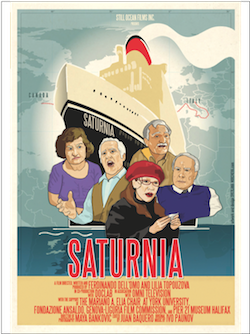.jpg) |
| Oscar Isaac and Jessica Chastain as Abel and Anna Morales |
I wanted to mention some of the films that might have been overlooked by the Oscars. I think this is one of them. I wanted to explore why that might be so.
If, as a 2012 survey indicates, the members of the Academy of Motion Picture Arts and Science are mostly white (94%) and mostly male (77%) and the median age of members is 62 with only 14% under the age 50 - is it any wonder that actors like Benedict Cumberbatch, Eddie Redmayne, Bradley Cooper and comedic figures like Steve Carrell and Michael Keaton (in non-comedic roles) get nods from the Academy but actors such as Isaac and his co-star David Oyelowo (who also starred as MLK in the phenomenal Selma) do not? Just hear me out ... but first a little bit about the film.
Set in 1981 New York City, Abel Morales (Oscar Isaac last seen in Inside Llewyn Davis) is the proprietor of Standard Oil. His trials and tribulations as a self-made man are immense - hijackings of his oil trucks; the assault of one of his drivers Julian (Elyes Gabel); being investigated by Assistant District Attorney Lawrence (David Oyelowo) for possible price fixing and tax evasion; and, being on the cusp of an immense deal to acquire a fuel oil terminal that is advantageously situated on the East River. The $1.5 million deal is to close in 30 days with the backing of a cooperative bank loan.
Here, Isaac has the quiet but menacing resolve of a young Pacino, the reserved but deadly Pacino of The Godfather trilogy, not the overblown ham of later years. It's in the eyes, the quiet fury, the impression that great violence is possible if he wills it. This image of a striving Hispanic immigrant makes for a striking contrast to the representations of the posh, brainy Brits in The Imitation Game or The Theory of Everything or the down home good old boy in American Sniper. Like many immigrants Morales is willing to get his hands dirty, even bloodied, to attain the American dream.
Perhaps this flawed, gritty image doesn't resonate with members of the Academy. Perhaps Anna Morales (a powerfully portrayed Jessica Chastain), Morales' acid tongued wife with the coarse New York accent, doesn't appeal to voters when pitted against a Felicity Jones as the gentle, embattled wife and mother in Theory or a Julianne Moore as the sweet-tempered, befuddled professor with Alzheimer's in Still Alice. Certainly their respective portraits are gentler, less abrasive than Chastain's with her cheap blonde bob and long, lacquered nails.
We recoil inwardly when Anna, in a very Lady MacBeth move, shoots a suffering deer struck by their car before her startled husband or when she subtly threatens the District Attorney who is raiding her house or when she belittles her husband Abel for his perceived timidity but we respect and fear her. Chastain commands the scenes she is in. In many ways, she is more determined, more ruthless, than Abel.
During this time, Abel hears a radio call for help from one of his drivers who is being hijacked. As he is nearby, Morales furiously pursues the stolen truck until it accidentally capsizes. One hijacker is killed while the other flees on foot. When Morales catches him, he pummels the man, almost kills him and then coerces the hijacker into revealing who he is working for (Morales suspects a competitor and he is correct). He then confronts this competitor and demands the value of the stolen fuel (more than $200,000) or he will be reported to the federal authorities.
Maybe this message is too pessimistic in these trying times for the average viewer. Maybe those in positions of privilege feel beleaguered, harassed by those importuning that they be let in - blacks, minorities, immigrants, women. Maybe that's why the film, and Isaac's performance, was overlooked. Maybe.
The film cost $20 million to make; it grossed $4.6 million (as of February 8, 2015). With these numbers, sadly, why would anyone give the director J.C. Chandor another opportunity regardless of the quality of the writing and the performances if it is not supported by cinema goers who are eager to see good work?
 |
| J.C. Chandor |










1 comment:
Michelle,
Marco and I also liked this film very much. It was complex and serious - in a good way. Loved the performances by Chastain and Issac.
And for me, the sotry of the striving hispanic immigrant was much more vital and relevant than a historic piece like The Imitation Game.
Post a Comment